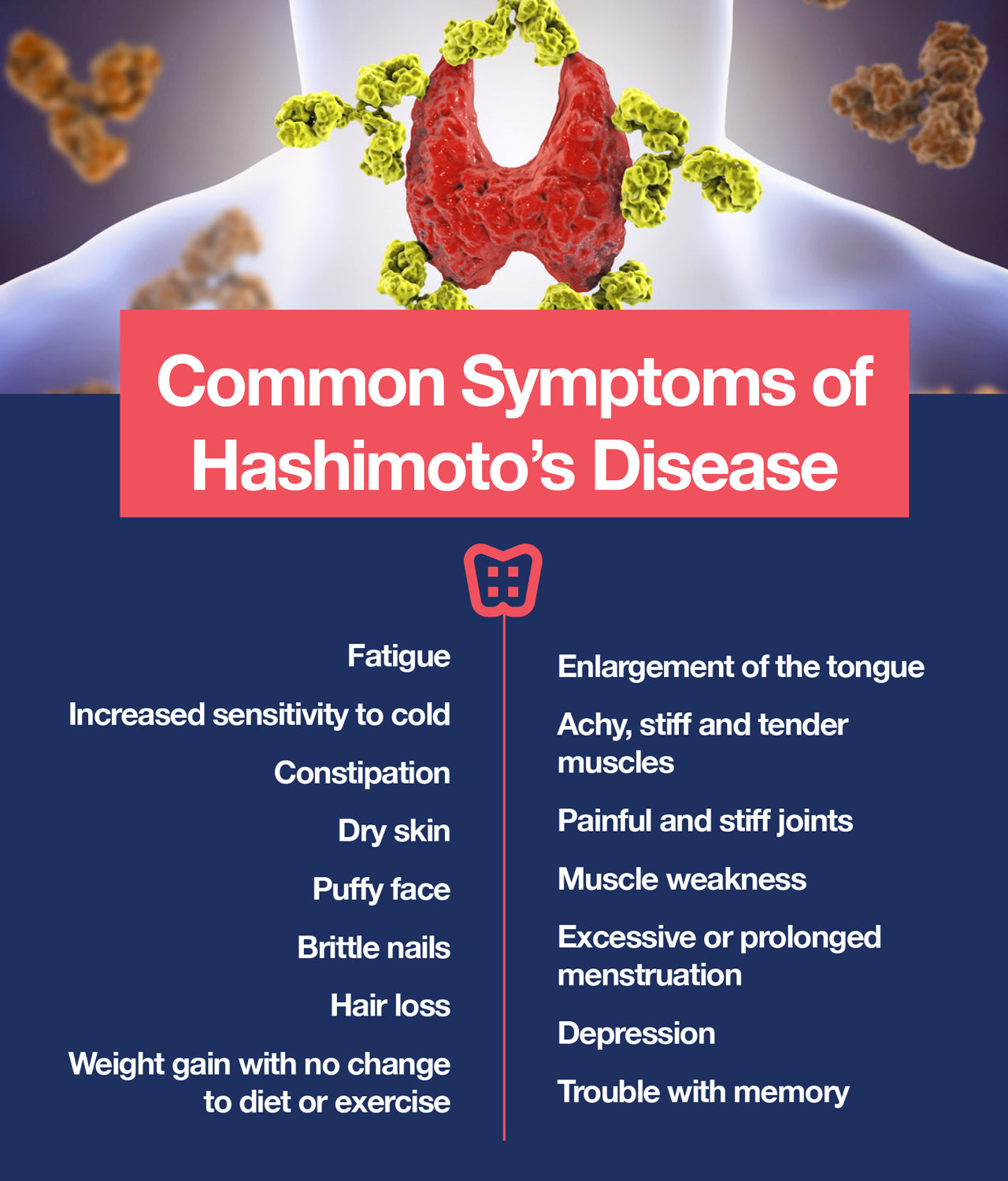Hashimoto’s Disease: When the Thyroid Sleeps on the Job
 By: by Amino Science
By: by Amino Science

Hashimoto’s disease, also known as Hashimoto’s thyroiditis or chronic autoimmune thyroiditis, is named after Dr. Hakaru Hashimoto, a Japanese physician and scientist. In the early 20th century, Dr. Hashimoto discovered a new form of thyroiditis, or inflammation of the thyroid gland. That new form of thyroiditis is now considered the most common cause of hypothyroidism, or underactive thyroid.
Most people have probably never given much thought to the butterfly-shaped gland positioned near the bottom of the neck. Unless they’ve been diagnosed with a thyroid problem, that is.
Everyone has a thyroid, and everyone needs the hormones produced by the thyroid to maintain a healthy body. When the thyroid behaves itself, it produces just the right amount of thyroid hormones. However, if it acts up, it can overproduce, resulting in a condition called hyperthyroidism, or it can underproduce, resulting in a condition called hypothyroidism. According to the American Thyroid Association, more than 12% of the United State's population will develop some type of thyroid condition during their lifetime.
What Causes Hashimoto’s Disease?
Thyroiditis is inflammation of the thyroid gland, or chronic lymphocytic thyroiditis. Hashimoto’s thyroiditis is an autoimmune disease, meaning the body’s immune system mistakes healthy cells for dangerous foreign invaders and attacks. In the case of Hashimoto’s disease, the immune system attacks the thyroid, causes inflammation, and often results in the underproduction of the thyroid hormones.
No one knows for sure what causes the autoimmune response, though some risk factors have been identified. Autoimmune disorders such as rheumatoid arthritis, celiac disease, pernicious anemia, type 1 diabetes, and lupus, can all increase your risk for Hashimoto's.

Symptoms of Hashimoto’s Disease
One of the most overt symptoms of Hashimoto’s disease is a goiter, or swelling of the thyroid. It appears as a large lump near the bottom of the throat, just below the Adam’s apple, that causes the front of your neck to look swollen. If the thyroid is swollen, movement can often be felt by placing fingers at the base of the neck, just below the thyroid, and swallowing. Movement when swallowing can usually be seen as well as felt.
Sometimes, a person may not notice that his or her thyroid is swollen, particularly if it has happened gradually. But someone else may notice the growth and movement and mention it. This is often how people are prompted to look into their thyroid health, from someone else who has had experience with a swollen thyroid noticing the symptoms and pointing them out.
Since this thyroid disease often causes hypothyroidism, Hashimoto’s symptoms often match those of an underactive thyroid.
Symptoms of hypothyroidism include:
| Fatigue | Increased cholesterol levels | Constipation | Sensitivity to cold |
| Dry skin | Muscle aches and stiffness | Memory fog | Hoarseness |
| Weight gain | Joint pain, stiffness or swelling | Slowed heart rate | Depression |
| Puffy face | Irregular menstrual periods | Weak muscles | Hair loss |
If you notice any symptoms of hypothyroidism or Hashimoto's a doctor's visit is called for, as serious health problems can emerge from untreated hypothyroidism, such as:
- Infertility
- Miscarriage
- Birth defects
- High cholesterol
- Heart failure
- Thyroid cancer
- Colorectal cancer
- Seizures
- Coma
- Death

Diagnosing Hashimoto’s Disease
Hashimoto’s disease is usually diagnosed through blood tests to check levels of thyroid hormones and to check for antibodies against the thyroid called thyroid peroxidase (TPO) antibodies. There are multiple causes of hypothyroidism so determining that the thyroid is under-producing is only step one of making a diagnosis.
A thyroid function test determines if you have the right amounts of thyroid-stimulating hormone (TSH) and thyroid hormone. An underactive thyroid will show high levels of TSH.
The physician will next need to determine why the thyroid is under-producing. A positive TPO antibody test will let the physician know that there is likely an autoimmune response occurring and that the immune system is producing antibodies against the thyroid. The antibody test helps point physicians toward conditions like Hashimoto’s disease and other thyroid disorders like Graves’ disease. The difference is that with Hashimoto’s the thyroid usually under-produces and with Graves’ the thyroid usually overproduces.
Treatment for Hashimoto’s Disease
Hashimoto’s treatment isn’t always necessary if the thyroid is producing the proper amount of thyroid hormones. Even if the TPO antibody test is positive, if the antibodies are not affecting thyroid function, then no treatment may be recommended. The physician will likely continue to monitor thyroid hormone levels and antibody levels.
Thyroid Medication
If thyroid hormones are low, then the physician will likely recommend thyroid hormone replacement. The medication is usually taken in the form of a daily thyroid supplement. The physician will monitor the patient’s medication level through blood work every few weeks. Once the dosage is stabilized, then an annual blood test is usually recommended.
Surgery
Once a patient begins thyroid hormone replacement, symptoms and the goiter, if present, usually disappear. However, if the goiter does not respond to treatment, then surgery to remove part or all of the thyroid may be recommended. If a thyroidectomy is performed, the patient will need to start thyroid hormone replacement and remain on the treatment for life.
Amino Acid Supplements
Amino acids are critical to maintaining a healthy body. They help build protein, which in turn assists with just about every function and system of the body. Amino acids help to make chemicals that are essential to healthy organs, including proper brain function.
The Penn State Hershey Medical Center has advised that those with a low-producing thyroid may benefit from taking the amino acid tyrosine. Tyrosine helps with the production of the thyroid hormone and may be beneficial to those who have under-producing thyroids.
Even though tyrosine may have benefits for those dealing with hypothyroidism, it is best to take a balanced mixture of all essential amino acids to make sure that the blood concentration of amino acids is optimal. Hypothyroid patients should always discuss any new supplements or alternative treatments with their physicians before starting them to make sure they are safe and will not interfere with an established treatment plan.

Up to 25% off Amino
Shop NowTAGS: conditions
Join the Community
Comments (0)
Most Craveable Recipes




 833-264-6620
833-264-6620



















